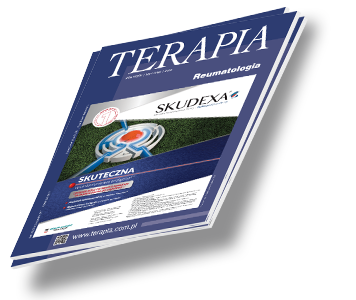Pneumonologia Terapia 2020, 1 ( 384 ) : 14 - 24
Blaski i cienie leczenia biologicznego astmy ciężkiej
Pros and cons of biologicals in severe asthma
Skuteczne i bezpieczne leczenie astmy rozpoczęło się w latach 70., kiedy po raz pierwszy zastosowano glikokortykosteroidy wziewne (wGKS). Do tej pory jest to podstawowa i, u większości chorych, bardzo skuteczna forma terapii. Jednak od samego początku byli pacjenci, którzy na to leczenie odpowiadali słabo lub nie odpowiadali w ogóle i u których w konsekwencji dochodziło do rozwoju astmy ciężkiej, wymagającej podawania systemowych glikokortykosteroidów (sysGKS).

Zaloguj się i przeczytaj bezpłatnie całą treść artykułu.
Nie masz jeszcze konta dostępowego?
Zarejestruj się bezpłatnie, a otrzymasz:
* dostęp do wszystkich doniesień oraz pełnych tekstów artykułów naukowych w naszej Czytelni,
* prawo do bezpłatnego otrzymywania newslettera "Aktualności TERAPIA" z przeglądem interesujących i przydatnych wiadomości ze świata medycyny oraz systemu ochrony zdrowia w Polsce i na świecie,
* możliwość komentowania bieżących wydarzeń oraz udziału w ciekawych quizach i konkursach.
Zapraszamy serdecznie, dołącz do naszej społeczności.



Dodaj komentarz